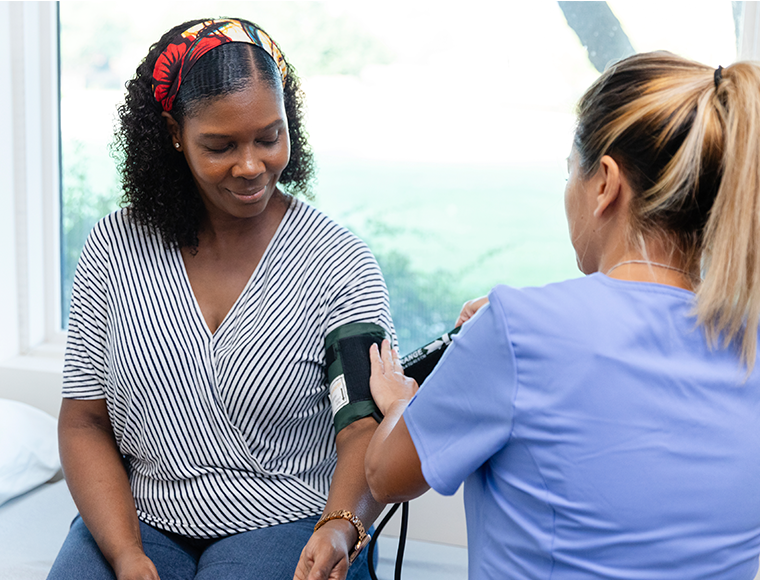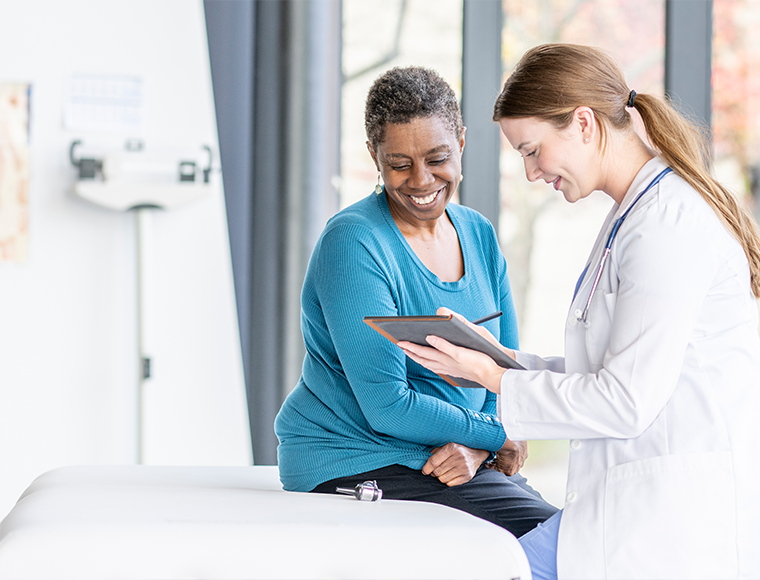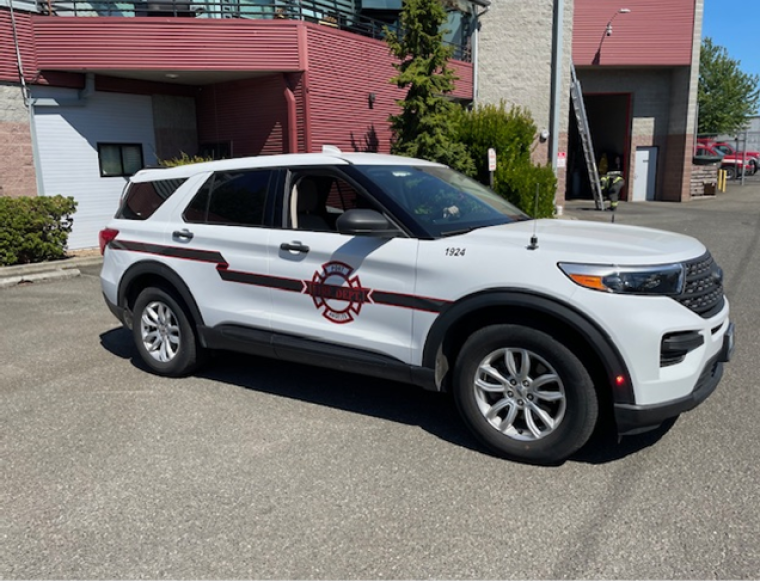A person’s ZIP code can determine how easy or challenging it is to access care. This has made it difficult for underserved communities, many of which are predominantly people of color, to access the COVID-19 vaccine. Because people of color are more likely to face health disparities, this lack of access also creates barriers to protecting high-risk individuals.
By partnering with community organizations and sharing learnings across state lines, the Community Plan of Virginia team organized a mobile clinic to bring vaccines into the Tidewater region, a historically underserved area. From idea to launch, the event came together in just three weeks.
Getting the clinic up and running in such a short amount of time would not have been possible without collaboration with our Washington, DC team. The DC team had recently implemented their STOP COVID initiative to provide COVID-19 testing at trusted Black churches across the city. Because the DC team was able to share lessons learned, the Virginia team was able to bring vaccines into the community quickly to improve health outcomes for this high-risk population.
"In the DC market, we partnered with FiveMedicine, a small diverse business, to help us with administration of COVID-19 testing for our testing events,” said Kathlyn Wee, CEO for the Community Plan of Maryland. “When my counterpart in Virginia gave me a call and said they needed help with rolling out the vaccine, I immediately told her about the good experience we had with FiveMedicine."
The clinic’s success depended on collaboration with the following local organizations:
- Virginia Department of Medical Assistance Services
- Virginia Department of Health
- Southeastern Virginia Health System (a local FQHC)
- FiveMedicine (a Black-owned, small diverse business)
- Peninsula Health District
"We intentionally set out to come to the Tidewater area to make sure people had access to the COVID-19 vaccine,” said Tameeka Smith, CEO for our Community Plan of Virginia.
To build awareness, UnitedHealthcare Community & State care coordinators contacted members living in the Tidewater area to let them know about the clinic, answer questions and arrange transportation. Many of these individuals manage chronic health conditions. During the 2-day event nearly 700 vaccines were given to members of the community.
The mobile clinic offered two different vaccines, empowering individuals to choose the one that worked best for them. The clinic didn’t require appointments, and many attendees could walk to the clinic or work with our care coordinators to arrange a ride to the site. By removing some of these common access barriers, attendees were able to receive the vaccine in a familiar setting surrounded by people in their community.











